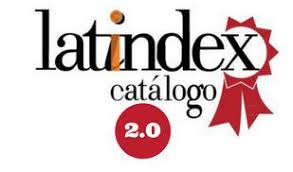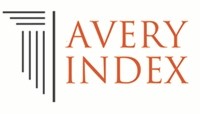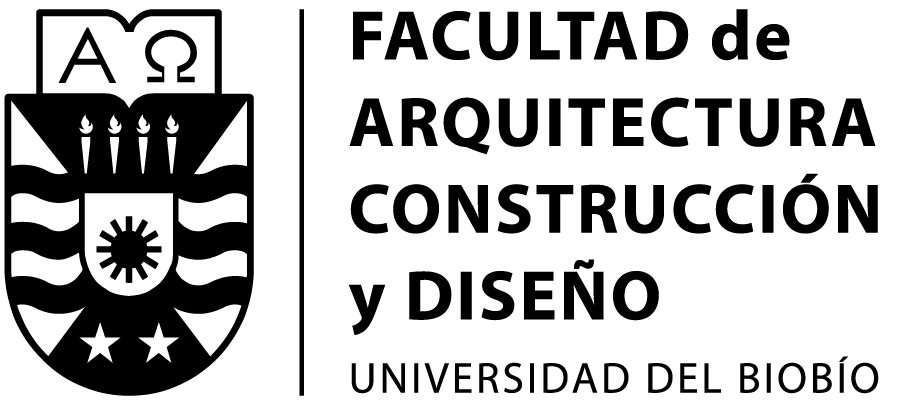Editorial Guidelines
EDITORIAL PUBLICATION POLICY
Urbano is open access and free, is funded by the Department of Urban Planning and Design and the University of Bio-Bio. The Editorial Team is committed to the scientific community to guarantee the ethics and quality of the published articles.
1. Publication in Urbano:
Urbano charges nothing for the submission, revision, and production of the issue where the article is inserted.
The journal maintains an open window for the reception of manuscripts that may be eligible to be published in the issues that are in process, and sometimes calls are made to define thematic lines.
The articles are received in Spanish and English through the digital platform and must comply with the format indicated in the Editorial Rules and Guidelines for authors. Failure to comply with these editorial rules implies the rejection of the article in the editorial process or retracting the article if it has been published.
Manuscripts from authors (authors and co-authors) who have been published in Revista Urbano in the last year (2 issues) will not be accepted.
Authors or co-authors will not be accepted in the same edition in more than one article.
To be eligible to publish in Urbano, the following is necessary:
- The articles must be written in a scientific format and be the result of their own research. Urbano does not publish applied research articles or literature reviews.
- The articles must be unpublished and not published or submitted for publication simultaneously in another journal, organization, or editorial.
- The articles must be original and rigorous. Urbano opposes academic plagiarism and rejects any article with fraudulent data, compromised originality, or duplicate submissions.
- The articles must omit any reference to the author's or authors' identity in the text. The authors' names, affiliations, and ORCIDS are compulsorily included on the digital platform.
- The articles must omit the sources of financing for the research in the text. The financing institutions are compulsorily included on the digital platform, both in the case of research projects and master's and/or doctoral theses.
- The articles must include bibliographic citations to the authors on whom they are based in the manuscript, and their compilation is mandatory in the final section, “Bibliographic References.”
- The articles must include at least 20 bibliographic references, of which at least one-third must be less than or equal to 5 years old.
- The articles will limit the self-citations of the authors to 3 and a maximum of 4 authors.
2. The editorial and peer review process:
Once the article is received, the review process is divided into two parts: editorial and peer review.
First, the received works are subject to a preliminary evaluation by the Editorial Board, which reviews their fit with the Editorial Standards and Guidelines for Authors, the journal's focus, the theme of the call—if any—and compliance with minimum criteria of quality and rigor. Since 2019, the plagiarism software iThenticate has complemented this work. This evaluation may culminate in the rejection of the article or its progress in the editorial process.
Once the article’s relevance has been established, it is submitted to anonymous arbitration using the double-blind system. The panel of experts is made up of domestic and international researchers specializing in various areas related to urbanism, at least 80% of whom are outside the publishing entity. To ensure the objectivity of the review, these experts should not present any conflict of interest regarding the research, its authors, and/or its funders. The reviewed articles will be treated confidentially. The experts review following the Urbano Assessment guideline (download guideline) and recommend a decision to the editor that outlines three categories:
PUBLISHABLE (optional changes suggested by the revisor and mandatory changes suggested by the editor).
PUBLISHABLE WITH MODIFICATIONS (mandatory changes suggested by revisor and editor).
NOT PUBLISHABLE (rejected).
The article is sent to a third revisor in case of discrepancy between revisors. If this peer review process qualifies the article as PUBLISHABLE WITH MODIFICATIONS, the Editorial Team establishes the need for a second round of evaluation based on the revisor’s requirements. A second review round is unnecessary for minor revision requests. The Editorial Team will verify that the suggestions have been incorporated. For major revisions, the article is sent to a second round of review. In both cases, the editorial team establishes a deadline for receiving the corrections of the article. If, after the second round, the revisors request major revisions again, the article will be rejected.
Some interesting data related to this review process in 2023:
- 64 manuscripts were received from 5 countries.
- In 2023, the rejection rate for articles received in the first editorial review process was 86%, and for those reaching the peer review process, it was 20%.
- The review panel comprised 28 female experts and 47 male experts from 11 countries in the Americas and Europe.
- The average period of editorial evaluation was 3.5 months per article, and the first round per article was 3.9 months.
- 17 articles were published in the last two issues.
- The evaluation guideline is accessible to the potential authors. Download evaluation guidelines.
3. Open access policies
Urbano publishes the open access Post-Print version of the article in its institutional repository.
Urbano authorizes authors to disseminate a copy of the published work through their electronic pages or any open-access repository. Next to the cited article, the year, full title, Urbano’s name, issue, and pages where it was published must be included in full, along with the DOI and/or the link to the article on Urbano’s electronic page.
4. Data archive
Urbano uses the LOCKSS system to create a distributed archiving system among collaborating libraries, allowing them to create permanent journal archives for conservation and restoration purposes. More...
Urbano includes the bibliography cited in each article as an exportable field in Dublin Core format, according to the OAI-PMH protocol.
5. Copyright and licenses
The content of the articles published in each Urbano issue is the sole responsibility of the authors. It does not necessarily represent the thinking or compromise the opinion of the Universidad del Bío-Bío.
The authors will retain their copyright; however, they will guarantee the journal the right to publish and disseminate their work first. The article's publication in Urbano will be subject to the Creative Commons Recognition License CC BY-SA, which allows others to share, copy, transform, or create new material from this work for non-commercial purposes, as long as the authorship and the first publication in this journal are acknowledged, and their latest creations are licensed under the same terms.
ETHICAL PUBLICATION POLICY
1. Responsibilities and rights of the authors.
When submitting the manuscript, the authors must submit a document where they declare responsibly that:
- All the authors have contributed significantly to the article's research and/or writing.
- The research data are their own, original, and authentic.
- They assign to Urbano the rights of public communication of their manuscript for its dissemination and use through the Open Journal System — or any other portal chosen by the editor — for the online consultation of its content and its extract, for its printing on paper and/ or for its download and archiving — all under the terms and conditions specified on the platforms where the work is hosted.
After the peer review rounds, the authors must incorporate the suggestions or argue their rejection, attaching a response letter to the revisers explaining the manuscript’s modifications within the deadline requested by the editor.
Throughout the editorial process, the authors must incorporate the formal and substantive corrections requested by the Editorial Team.
Throughout the editorial process, the authors have the right to withdraw their article from the editorial process, justifying this decision to the Editorial Team.
After the style review process, the authors have the right to review the latest version of the text before it is published. The approval of this version implies the closure of the text for its layout and publication, with no possibility of changes a posteriori.
2. Editorial responsibilities.
The Editorial Team must consider all submitted manuscripts for publication based on their scientific contributions and compliance with the editorial rules.
The Editorial Team should seek expert revisors in the specific area of the manuscript, preserving the anonymity of the authors and revisors and the publication's academic and scientific nature at all times.
The Editorial Team must communicate constantly with authors and external revisors, and clarify all doubts that arise during the editorial process.
The Editorial Team has the full authority to accept or reject a manuscript. The reasons for issuing this verdict may be as follows:
- The article does not fit the theme of the call and/or the general focus of Urbano.
- The article does not conform to these Editorial Standards and/or the Guidelines for Authors
- The article does not conform to a minimum scientific quality and/or rigor standard.
- The article receives negative reviews in the peer review rounds.
- The article does not incorporate the suggestions of the evaluators and requests of the Editorial Team within the established deadlines.
- The article receives requests for significant changes in the second round of peer review.
The Editorial Team must publish corrections, clarifications, retractions, and apologies when necessary.
The Editorial Team must not have any conflicts of interest regarding the submitted articles and must ensure that the revisors do not have any regarding the research they review.
The Editorial Team must ensure that the articles published in Urbano comply with the ethical criteria for scientific publications set by the Committee on Publication Ethics (COPE). This includes not allowing academic fraud, fraudulent data, plagiarism, or self-plagiarism in articles involving relevant parts of the contributions. The detection of these practices implies the immediate rejection or retraction of the article.
The Editorial Team must aim at improving and updating its journal constantly.
3. Responsibilities of external revisors.
Revisors should reject reviews requested by the Editorial Team when they lack sufficient competence, experience, and knowledge of the manuscript's specific topic.
Revisors should inform the editorial team when there are potential conflicts of interest.
Revisors must conduct an objective analysis of the manuscripts they review, based on their observations, within the deadline requested by the Editorial Team.
Revisors must maintain the confidentiality of the manuscript during the editorial process. It is not possible to disseminate or use its content.
Revisors must maintain confidentiality about their relationship with the manuscript.






















